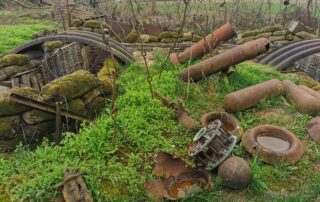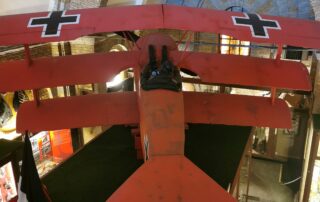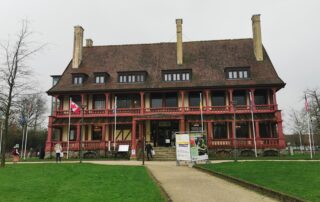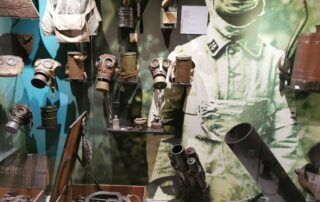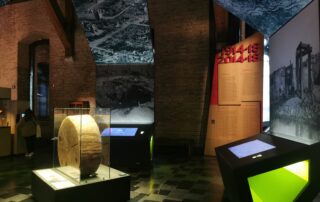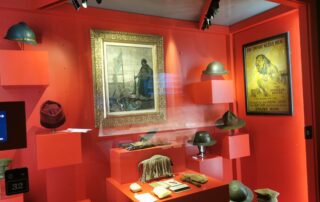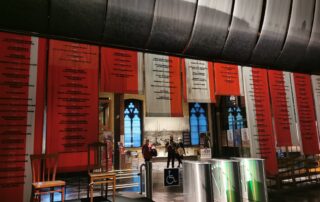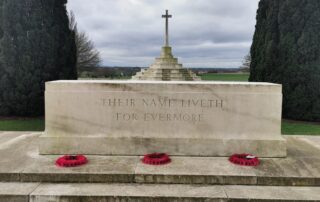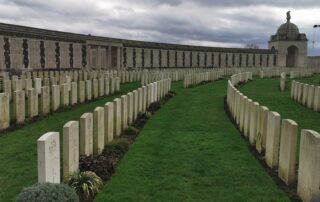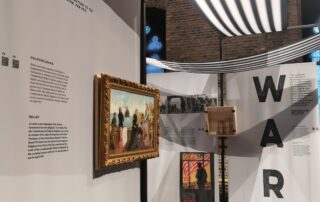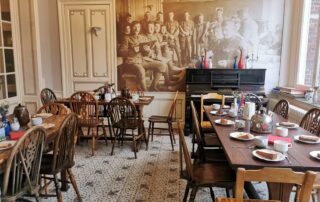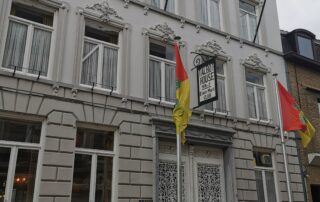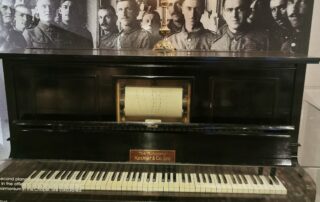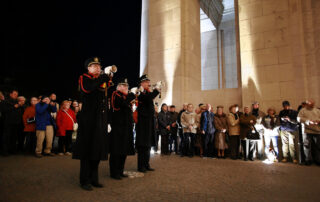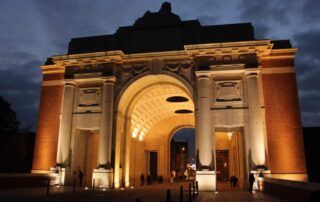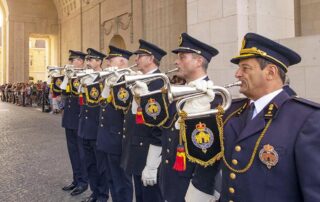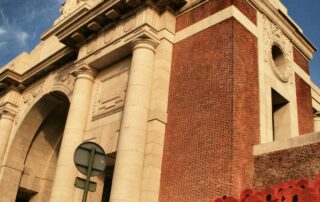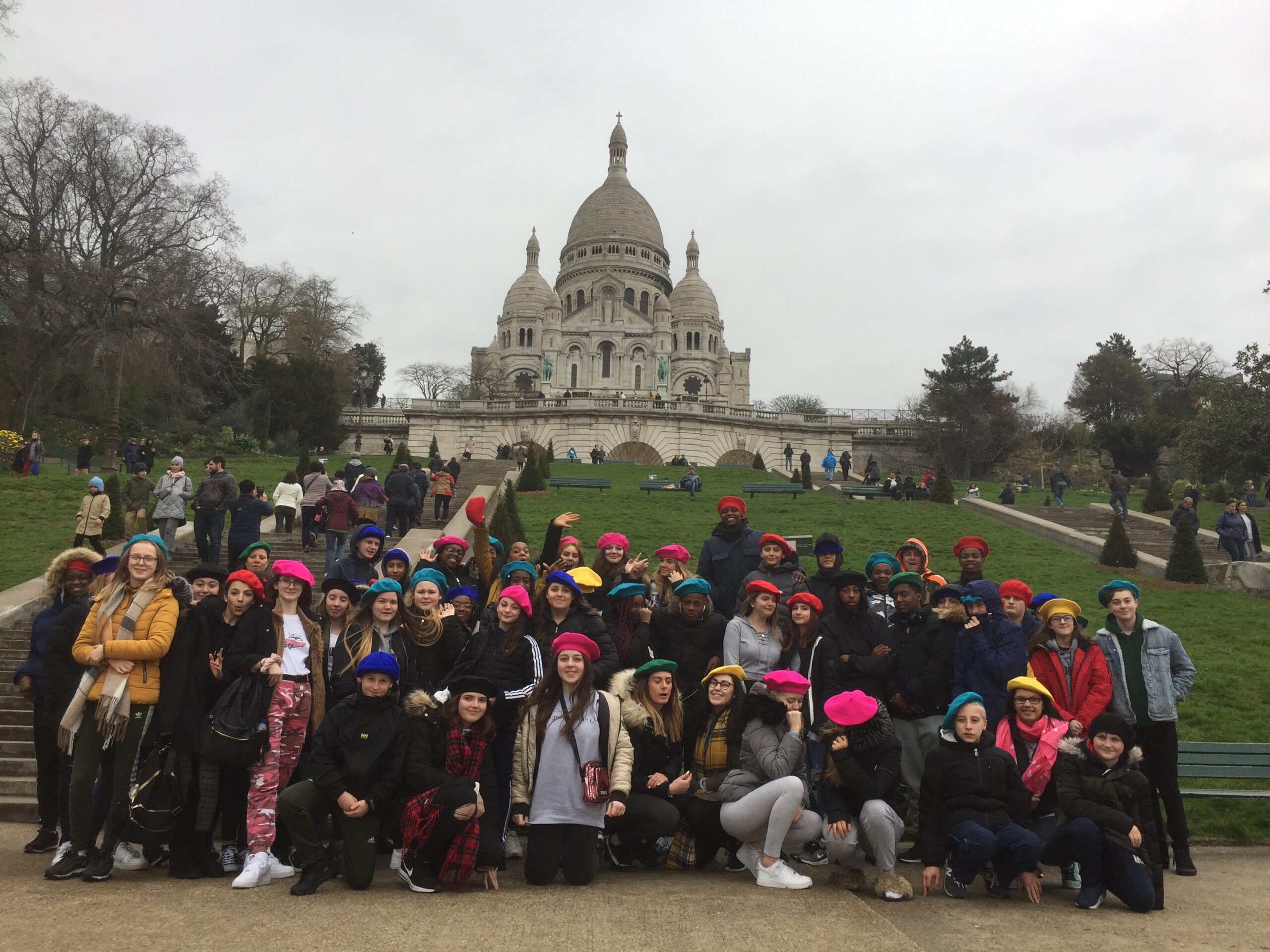Introduction: Exploring the captivating history of Belgium through an educational trip to Ypres
Belgium is a country with a rich and storied history that spans centuries. From its medieval towns to its World War I battlefields, this small European nation has a wealth of cultural and historical gems to discover. One such gem is the city of Ypres, located in the Flanders region of Belgium. Ypres, which played a pivotal role in World War I, offers an unforgettable educational tour for schools. Students will have the opportunity to explore iconic sites such as the Menin Gate, the Passchendaele Memorial Museum, Tyne Cot Cemetery, In Flanders Field Museum, Hooge Crater Museum and Talbot House. Join us as we delve into the fascinating history of Ypres and the incredible experiences that await students on this educational journey.
Walking in the footsteps of the past: Exploring key historical sites in Ypres
During the educational tour of Ypres, students have the incredible opportunity to walk in the footsteps of the past by exploring key historical sites in the city. Each site offers a unique perspective on the events that unfolded during World War I, leaving a lasting impact on both soldiers and civilians.
The Menin Gate, a solemn memorial with engraved names of thousands of soldiers, serves as a powerful reminder of the sacrifices made during the war. Students will experience a profound sense of humility as they walk through this iconic site, gaining a deeper understanding of the human cost of conflict.
In addition, the Passchendaele Memorial Museum and Tyne Cot Cemetery provide students with the chance to pay their respects to those who lost their lives. This visit also allows them to grasp the enormity of the war’s impact on both individuals and communities, fostering empathy and appreciation for the sacrifices made.
For a comprehensive glimpse into the war, the In Flanders Field Museum offers engaging exhibits that invoke a powerful emotional response. From personal stories to interactive displays, students will be immersed in the experiences of those who lived through the war. This museum experience encourages reflection and critical thinking, deepening students’ understanding of the war’s complexities.
A trip to the Hooge Crater War Museum, promises to be a thought-provoking and educational experience. By combining historical artifacts, interactive exhibits, and outdoor exploration, the museum provides a unique opportunity for students to connect with the past and gain a deeper understanding of the impact of war on both a global and personal scale.
Lastly, a visit to Talbot House offers a unique insight into life on the home front. Students will discover how this house provided solace and respite for soldiers amidst the chaos of war, giving them a glimpse into the resilience and strength of the human spirit.
Exploring these key historical sites in Ypres is a remarkable opportunity for students to learn about the past firsthand. By embracing this journey, educators are providing students with an unforgettable experience that will enrich their knowledge and broaden their understanding of the world’s history. Join us as we walk in the footsteps of the past and uncover the untold stories of Ypres.
Bringing history to life: Engaging activities and workshops for students
Continuing our educational tour of Ypres, we cannot miss out on the exciting and interactive activities and workshops available for students to truly immerse themselves in the rich history of Belgium. These hands-on experiences provide a unique opportunity for students to not only learn about the past but also engage with it in a meaningful and memorable way.
One such activity is the trench experience, where students can step back in time and walk through the recreated trenches that were once home to soldiers during World War I. This immersive experience offers a glimpse into the challenging conditions faced by those on the front lines and fosters a deeper understanding and empathy for the sacrifices made. Both Passchendaele, Hooge Crater and the Yorkshire Trench & Dugout offer the experience to immerse yourself into the trenches.
Additionally, workshops on wartime communication and code-breaking allow students to explore how messages were transmitted and intercepted during the war. Through interactive exercises and decoding challenges, students can gain a practical understanding of the importance of communication in historical conflicts.
Another engaging activity is the visit to the In Flanders Fields Museum. Here, students can delve into the museum’s comprehensive collection of personal accounts, artifacts, displays, and multimedia presentations, which provide a comprehensive overview of the events that took place in Ypres during World War I. Students will gain a profound understanding of the physical and emotional toll that this devastating conflict took on individuals and communities alike.
From personal stories to historical accounts, the museum brings history to life and allows students to connect with the past on a personal level by showcasing an extensive collection of photographs, letters, and diaries offers a valuable opportunity to connect with the personal stories of those who lived through this tumultuous period in history.
By participating in these engaging activities and workshops, students not only deepen their knowledge of history but also develop critical thinking skills, empathy, and a greater appreciation for the sacrifices made by those who served in the Great War.
Participating in the Last Post ceremony: A solemn moment of remembrance
Our educational tour of Ypres would not be complete without participating in the iconic Last Post ceremony at the Menin Gate. This daily event has been held since 1928, with the exception of a brief interruption during World War II. It serves as a poignant tribute to the soldiers who lost their lives in the Ypres Salient during World War I.
The Last Post ceremony begins promptly at 8:00 PM, and the sound of the bugle ringing out across the city is a deeply moving experience. As we gather with locals and visitors from around the world, we are reminded of the sacrifices made by those who fought in the Great War.
During the ceremony, a bugler from the local fire brigade plays the Last Post, followed by a minute of silence. This simple yet powerful act of remembrance honors the memory of the fallen soldiers and allows us a moment to reflect on the profound impact of war.
Participating in the Last Post ceremony is a solemn and humbling experience. It serves as a reminder of the importance of honoring the past and ensuring that the sacrifices made during times of conflict are never forgotten.
Conclusion: Enriching minds and souls through a journey into Belgium’s extraordinary past
In conclusion, an educational tour of Ypres offers schools a unique opportunity to enrich the minds and souls of their students through a journey into Belgium’s extraordinary past. By immersing students in the rich history of this region, the tour instills a sense of empathy, critical thinking, and personal growth.
The impact of walking through battlefields, visiting iconic sites, and engaging with primary sources cannot be understated. It allows students to connect emotionally with the sacrifices made by those who fought, fostering a deep understanding of historical events. Moreover, the tour enhances students’ ability to analyze evidence, form opinions, and participate in respectful debates.
Beyond academia, the tour also cultivates personal growth by nurturing resilience, adaptability, and problem-solving skills. It encourages students to step out of their comfort zones, collaborate with peers, and develop crucial leadership qualities.
Ultimately, an educational tour of Ypres creates lifelong learners who are not only curious about history but are also empathetic, intellectually sharp, and eager to explore the complexities of the world. It is an experience that will stay with them for a lifetime.
You can view details of our TRIPS TO YPRES or you can REQUEST A QUOTE to find out more information.
by Select School Tours
Share
by Select School Tours
Share
Hi, I'm Jack and as I’m currently studying A Level History, Politics & Economics, I was thrilled to be given the opportunity to visit Washington DC and New York [...]
Planning a school trip can be an exciting endeavor, and there are numerous possibilities depending on your location, budget, and the interests of the students. We have pulled together [...]
Hi, my name is Kaeti and as the new travel advisor for Select School Travel, covering Manchester, Liverpool and Cheshire areas, I thought I would introduce myself to you [...]

